Plumbers play a crucial role in ensuring that buildings have access to clean water and safe waste disposal systems. They are responsible for the installation, repair, and maintenance of pipes, fixtures, and other plumbing systems in residential, commercial, and industrial buildings.
Without the expertise of plumbers, buildings would not have drinking water and waste systems, which could lead to a wide range of health and safety issues for occupants. For example, leaky pipes or malfunctioning fixtures could result in water damage, mold growth, and even electrical hazards.
Moreover, plumbers are often called upon to provide emergency services, such as repairing burst pipes or clogged drains, which can cause significant damage to a building if left unattended.
In short, the services of a plumber are essential in ensuring that buildings have reliable access to clean water and proper waste disposal systems. Their work may often go unnoticed, but it is critical in building maintenance and safety.
Who is a Plumber?
Plumbing is a critical aspect of modern living that has revolutionized the way we utilize water in our homes and workplaces. Plumbers are trained professionals that install, repair and maintain plumbing systems. Plumbing systems can be complex, and there are different types of plumbers who specialize in specific areas of plumbing. In this article, we will explore the different types of plumbers and the services they provide.
Role of a Plumber

Plumbers also need to stay up-to-date with the latest plumbing technologies and techniques to ensure that they are providing the best possible service to their clients.
It’s important to note that not all plumbers are licensed or certified. Therefore, it’s important to do your research and choose a reputable and qualified plumber for your project. Hiring an unlicensed or inexperienced plumber can lead to costly and potentially dangerous mistakes.
In summary, plumbers play a crucial role in ensuring the proper functioning of a building’s plumbing system. They are skilled professionals who specialize in various aspects of plumbing, and it’s important to choose the right plumber for your specific project.
The Duties of a Plumber Typically Include:
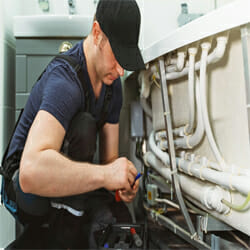
2. Fixing leaks: Plumbers are often called in to fix leaky pipes or faucets. This can involve finding the source of the leak, replacing faulty pipes or fixtures, and ensuring that everything is properly sealed to prevent future leaks.
3. Installing fixtures: Plumbers install and repair a variety of fixtures, including sinks, toilets, bathtubs, showers, and dishwashers. This can involve working with complex plumbing systems and ensuring that everything is properly connected and functioning correctly.
4. Maintaining septic systems: Plumbers also work with septic systems, ensuring that waste is properly transported away from homes and businesses. This can involve inspecting and maintaining septic tanks, drain fields, and other components of the system.
5. Troubleshooting problems: When problems arise with plumbing systems, plumbers are often called in to troubleshoot the issue and come up with a solution. At times they use specialized tools and equipment to diagnose problems and make repairs.
6. Working with clients: Plumbers often work closely with clients to understand their needs and ensure that their plumbing systems are functioning properly. This can involve explaining technical information to clients and answering their questions about plumbing systems.
7. Training apprentices: More experienced plumbers often work with apprentices to provide on-the-job training and mentorship. This involves teaching new plumbers about plumbing systems, showing them how to use specialized tools and equipment, and providing guidance and support as they gain experience.
Here Are Some Additional Common Duties of a Plumber:
- Reading and interpreting blueprints and building codes to determine the layout and installation of plumbing systems.
- Maintaining and repairing heating systems, such as boilers, furnaces, and radiators.
Installing and repairing sewage and drainage systems.
- Installing and repairing water supply lines, including underground and overhead pipes.
- Responding to emergency calls for plumbing repairs and services, such as burst pipes or gas leaks.
- Keeping up-to-date with industry standards and regulations, as well as new plumbing technologies and materials.
- Using specialized tools and equipment, such as wrenches, pipe cutters, and soldering torches, to install and repair plumbing systems.
- Providing advice and recommendations to clients on plumbing system maintenance, upgrades, and replacements.
- Collaborating with other professionals, such as electricians and construction workers, to ensure plumbing systems are integrated properly with other building systems.
- Keeping accurate records of work performed, including materials used, labor hours, and costs, to ensure accurate billing and invoicing.
The Average Salary for a Plumber
The average salary of a plumber in the United States is $50,602 per year, with an additional $6,750 in overtime pay. However, it’s important to note that several factors can influence a plumber’s salary, such as their level of experience, the location where they work, and the specific type of plumbing work they specialize in.
Additionally, the salary data provided was reported to Indeed as of December 26, 2020, so it may be subject to change. It’s always best to consult multiple sources for the most accurate and up-to-date information.
In addition to a salary, many plumbers may also receive various benefits as part of their compensation package.

- Food provided: Some plumbing companies may offer free meals or snacks to their employees as a way to show appreciation and keep them energized throughout the workday.
- Paid time off: This benefit allows plumbers to take time off from work without sacrificing their pay. Paid time off can include sick leave, vacation time, or personal days.
- Tuition reimbursement: Some plumbing companies may offer tuition reimbursement to help plumbers cover the cost of continuing education or advanced training. This benefit can help plumbers develop new skills and stay up-to-date with the latest industry trends.
- Flexible schedule: Plumbers are able to enjoy a flexible work schedule, which allows them to adjust their hours to accommodate personal or family responsibilities.
- Life insurance: Some plumbing companies offer life insurance as a benefit to their employees. This benefit can provide financial support to a plumber’s family in the event of an unexpected death.
- Health insurance: Health insurance is a common benefit offered to plumbers that helps cover the cost of medical expenses.
- Dental insurance: This benefit helps cover the cost of dental procedures, including routine check-ups, cleanings, and fillings.
Vision insurance: This benefit covers the cost of eye exams, glasses, and contact lenses.
- Parental leave: Some plumbing companies offer paid parental leave to new parents, allowing them to take time off work to care for their newborn or newly adopted child.
- Professional development assistance: Plumbers may be able to take advantage of professional development assistance programs that help cover the cost of training and development opportunities.
- 401(k) plans: A 401(k) plan is a retirement savings plan that allows plumbers to save a portion of their income for retirement. Some plumbing companies may offer matching contributions to their employees’ 401(k) accounts.
- Disability insurance: Financial support is provided as a benefit to plumbers under this insurance scheme if they are not able to work due to any form of disability.
Increasing the Salary for a Plumber
It’s important to note that the benefits offered to plumbers may vary depending on their place of employment and the specific policies of the plumbing company.
- Continuously develop your skills and knowledge: As a plumber, you can expand your skill set by attending training sessions, conferences, or workshops to stay up to date with the latest industry trends and technology. This can make you a more valuable employee, which can lead to a higher salary.
- Specialise in a particular area: If you specialise in a specific area, such as solar water heating or bathroom remodelling,
you can command a higher salary as a plumber. Specialising in a particular field allows you to become an expert, which makes you more valuable to potential employers or customers.
- Negotiate your salary: If you feel that you are underpaid for your skills and experience, consider negotiating your salary with your employer. Make sure to present your case professionally and highlight your achievements and contributions to the company.
- Become a union plumber: Joining a union can give you access to better pay, benefits, and working conditions. Unions can also help you negotiate for better wages and benefits, as well as provide training and job opportunities.
- Start your own plumbing business: Starting your own plumbing business can be a profitable venture, as you have more control over your earnings. However, this route requires significant effort, dedication, and investment to establish and grow your business.
Overall, there are several ways to increase your salary as a plumber, from gaining more experience to pursuing a master plumber certification and specializing in a specific field. Continuously developing your skills and knowledge, negotiating your salary, and joining a union or starting your own business are also viable options.
8 Different Types of Plumbers
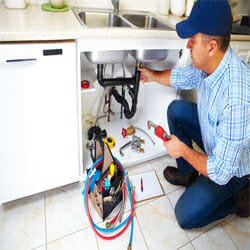
Residential plumbers can install or replace water heaters, faucets, sinks, toilets, and showers. They can also work on the main water supply line, sewer line, and drainage systems.
2. Commercial plumbers: Commercial plumbers specialise in plumbing systems in commercial buildings such as hotels, schools, hospitals, and offices. Commercial plumbing systems are more complex than residential systems and require specialised knowledge and skills.
Commercial plumbers can install, repair, and maintain plumbing systems in large buildings. They can also install and repair specialised plumbing systems such as fire suppression systems, grease traps, and water filtration systems.
3. Service and repair plumbers: Service and repair plumbers specialise in diagnosing and repairing plumbing issues. They can repair leaks, clogs, and other plumbing problems. Service and repair plumbers can also install or replace plumbing fixtures such as faucets, sinks, and toilets. They work quickly to fix plumbing problems to minimise the inconvenience to the homeowner or business owner.
4. New construction plumbers: New construction plumbers work on plumbing systems in newly constructed buildings. They work with architects and builders to design and install plumbing systems that meet the needs of the building’s occupants. New construction plumbers install water supply lines, sewer lines, drainage systems, and plumbing fixtures in new buildings. They also ensure that the plumbing system meets local building codes and regulations.
5. Industrial plumbers: Industrial plumbers specialise in plumbing systems in industrial settings such as factories, power plants, and chemical plants. Industrial plumbing systems are more complex than commercial or residential systems and require specialised knowledge and skills. Industrial plumbers install, repair, and maintain plumbing systems that can handle high-pressure water and chemicals. They also work with specialised plumbing systems such as boilers, steam systems, and cooling towers.
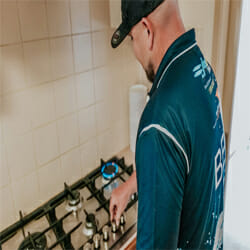
7. Gas plumbers: Gas plumbers specialise in installing, repairing, and maintaining gas lines and gas appliances. They work with natural gas and propane gas systems. Gas plumbers can install gas lines for stoves, furnaces, water heaters, and other gas appliances. They can also repair gas leaks and ensure that gas systems are functioning safely.
8. Emergency plumbers: Emergency plumbers provide 24-hour plumbing services for emergencies such as burst pipes, gas leaks, and sewage backups. They are available at any time of the day or night to provide plumbing services. Emergency plumbers can quickly diagnose and repair plumbing problems to minimise damage to the home or building.
Choosing a Reliable Plumber
Availability: It’s essential to choose a plumber who is available to provide services when needed. Plumbing emergencies can occur at any time, and having a plumber who can attend to the situation promptly is crucial to prevent further damage.
- Reputation: You should also consider the reputation of a plumber before hiring their services. You can ask for recommendations from friends or family members who have used the plumber’s services before or check online reviews.
- Communication Skills: A plumber with excellent communication skills is essential. You want a plumber who can explain the problem, the solution, and the costs involved clearly and concisely. A good plumber should also be able to answer any questions you may have and provide you with regular updates on the progress of the job.
- Insurance: Plumbing can be a hazardous job, and accidents can happen. It’s a wise decision to hire a plumber who has insurance to cover any damages or injuries that may occur during the job.
In summary, when choosing a plumber, you should consider their experience, service charges, service warranty, certification, availability, reputation, communication skills, and insurance. Taking these factors into account will help you choose a plumber who can provide quality services and guarantee the safety of your building and its occupants.
If you are looking for a reliable plumber that can provide quality plumbing services. See these two links below:
Conclusion
Plumbing is an essential aspect of modern living that requires specialized knowledge and skills. There are different types of plumbers that specialize in different areas of plumbing, such as residential, commercial, industrial, service and repair, new construction, drain cleaning, gas, and emergency plumbing. By hiring the right type of plumber for your plumbing needs, you can ensure.
No matter what time of the day or night you need a plumber, Damien McEvoy Plumbing will be able to accommodate you and your emergency needs. Call us today at (02) 8599 4593 for free quotes!


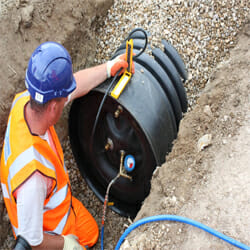 Installing and repairing sewage and drainage systems.
Installing and repairing sewage and drainage systems. Vision insurance:
Vision insurance: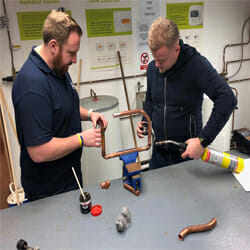 you can command a higher salary as a plumber. Specialising in a particular field allows you to become an expert, which makes you more valuable to potential employers or customers.
you can command a higher salary as a plumber. Specialising in a particular field allows you to become an expert, which makes you more valuable to potential employers or customers. Availability:
Availability: Enquire
Enquire